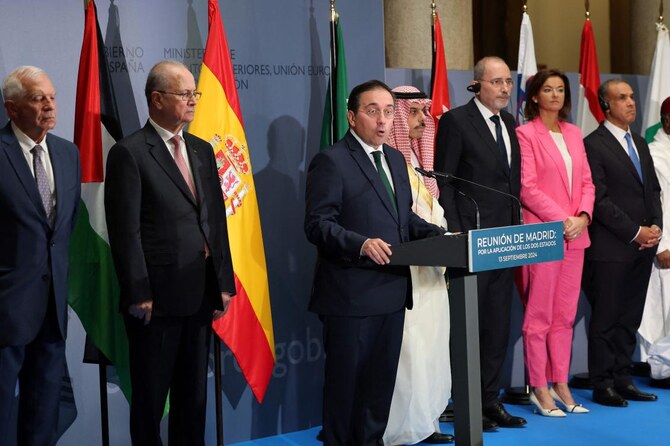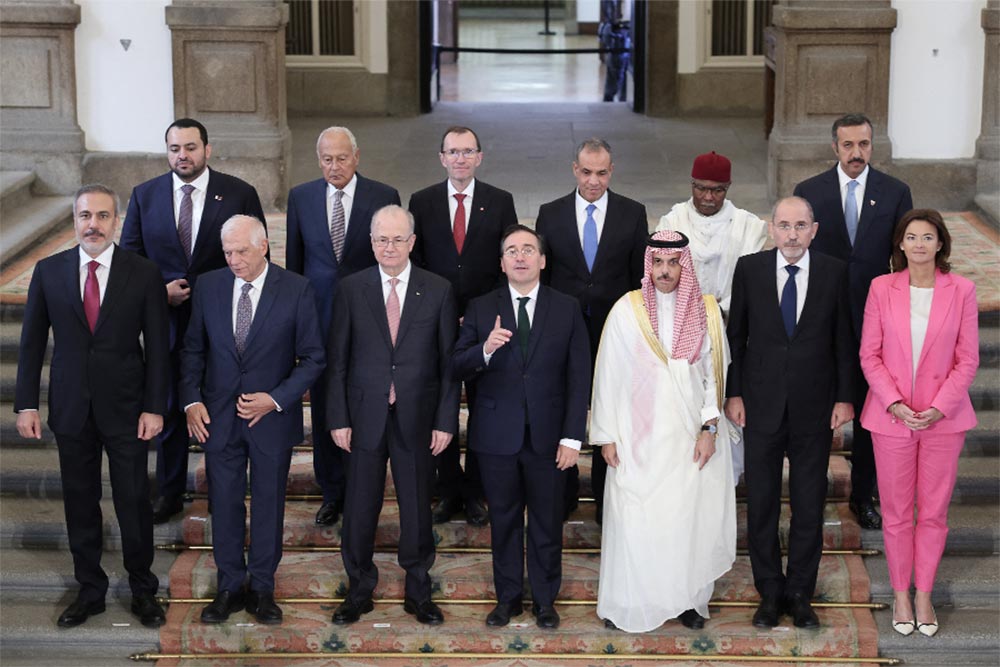Spain hosted a high-level meeting on Friday, bringing together several Muslim and European countries to discuss ways to end the Gaza war and implement a two-state solution to the Israeli-Palestinian conflict. The gathering focused on establishing a clear schedule for Palestinian statehood.

Spanish Foreign Minister Jose Manuel Albares emphasized the urgency of the situation, stating, “We meet to make another push for the end of the war in Gaza, for a way out of the unending spiral of violence between the Palestinians, the Israelis… That way is clear. The implementation of the two-state solution is the only way.”
Key attendees included foreign ministers from Norway and Slovenia, European Union foreign policy chief Josep Borrell, Palestinian Prime Minister Mohammad Mustafa, and members of the Arab-Islamic Contact Group for Gaza, representing Egypt, Saudi Arabia, Qatar, Jordan, Indonesia, Nigeria, and Turkey.
Notably absent from the meeting was Israel, which Albares explained was not invited as it is not part of the contact group. However, he added, “We will be delighted to see Israel at any table where peace and the two-state solution are discussed.”

The meeting comes in the wake of Spain, Norway, and Ireland formally recognizing a unified Palestinian state on May 28, comprising the Gaza Strip and the West Bank, with East Jerusalem as its capital. This brings the total number of UN member states recognizing Palestinian statehood to 146 out of 193.
Participants expressed a “clear willingness” to move from words to actions, aiming to establish a definitive schedule for implementing the two-state solution. The first step proposed is Palestine joining the United Nations as a full member.
The renewed push for a two-state solution comes amid the backdrop of the 11-month-long war in Gaza between Israel and Hamas, which has been the bloodiest episode in the overall conflict. Additionally, escalating violence in the occupied West Bank has added urgency to finding a peaceful resolution.

The two-state solution, originally outlined in the 1991 Madrid Conference and the 1993-95 Oslo Accords, has long been seen as the path to peace in the region. However, the peace process has been stagnant for years, complicated by expanding Jewish settlements in the West Bank and East Jerusalem, territories captured by Israel in the 1967 Middle East war.
Norwegian Foreign Minister Espen Barth Eide highlighted additional topics discussed at the meeting, including the demobilization of Hamas and the potential normalization of ties between Israel and other states, particularly Saudi Arabia.



